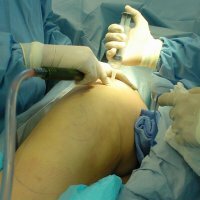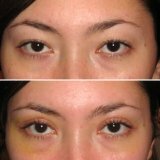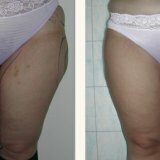Plastic Surgery: Liposuction

Liposuction is a procedure that removes unwanted fat deposits that accumulate in certain areas of the body. Doctors especially recommend liposuction in such areas, where fat practically does not go out, even if you regularly exercise some exercises or follow a diet.
Liposuction can be considered the most effective method by which you can remove fat. At the same time, today it is the most common service provided in many salons, the profile of which is plastic surgery.
Liposuction can be carried out as an independent procedure, and in a complex way, that is simultaneously can be involved and cosmetology manipulations. Typically, liposuction is used to remove excess fats from the abdominal area, the inner and outer sides of the thighs, buttocks, back, arms, neck and chin.
With the help of liposuction, that is, removing unnecessary fats, you can significantly improve the appearance of your body, but you can achieve the desired result only with the presence of elastic skin. If the skin is not very elastic, then such interference can lead to further cosmetic problems. In these cases, it is suggested to combine some actions, which means adding to the liposuction truncation of excess skin, formed after removal of excess fats.
To whom is liposuction prescribed?
The best candidates for liposuction are people who are not obese, who have elastic and elastic skin and a variety of pockets, where unwanted excess fat is deposited. In these patients, as a rule, liposuction is very successful, their body is transformed and acquires those outlines that you can dream about.
In cases where the patient is young, the results are much better, the reason is that their skin has not solidified and retained its elasticity. Liposuction is allowed only for healthy people who do not suffer from chronic diseases, such as diabetes or cardiovascular insufficiency.
Contraindications to liposuction
- People who are overweight, obese and those who are trying to lose weight with this method.
- Patients taking drugs to promote wound healing, refer to those drugs that treat thrombophlebitis and swelling.
- People who have insufficient skin elasticity. Surgeons, examining the patient before the operation, mandatory check the elasticity and elasticity of the skin, as well as its ability to reduce after the procedure.
How this procedure is performed
Liposuction is usually performed as an outpatient operation under general anesthesia. If they work only on local sites, then local anesthesia is used. Small incisions are made in the skin folds. To prevent tumors, use saline containing lidocaine and epinephrine - this prevents bruising that occurs after surgery.
A narrow metal tube is connected with the machine by a very thin plastic hose, injected into the incision, which is prepared on the skin. Fat through the tube is sucked into a special container. This procedure is carried out by a professional surgeon, and enough slightest careless movement to cause damage to tissues. For example, if a surgeon removes more fat from one area than from another, the body may remain with dents.
In those places where liposuction was performed, hematomas appear that dissolve after ten to fifteen days, but edema can last about three months.
What results can be seen after the operation?
The result depends on the amount of fat that has been removed. A person can immediately leave the hospital or stay there for one night. All this is discussed personally with the surgeon. The incisions made to enter, heal very quickly. After the anesthesia goes through, pain may appear, but they usually pass in two to three hours.
Complications after surgery
Any operation has a certain amount of risk. Small complications caused by liposuction - skin disorder, skin necrosis, hematomas, allergic reaction to medications, small scars, pigmentation, possible during or postoperative syncope. But these cases are very rare in this practice.
Severe complications after liposuction are problems that are associated with anesthesia, blood clots, injuries of organs located in the abdominal cavity, blood loss, hypothermia, allergy caused by medications, cardiac arrest, cardiac arrhythmia, heart attack. All these consequences can be prevented if the issue is approached competently.



